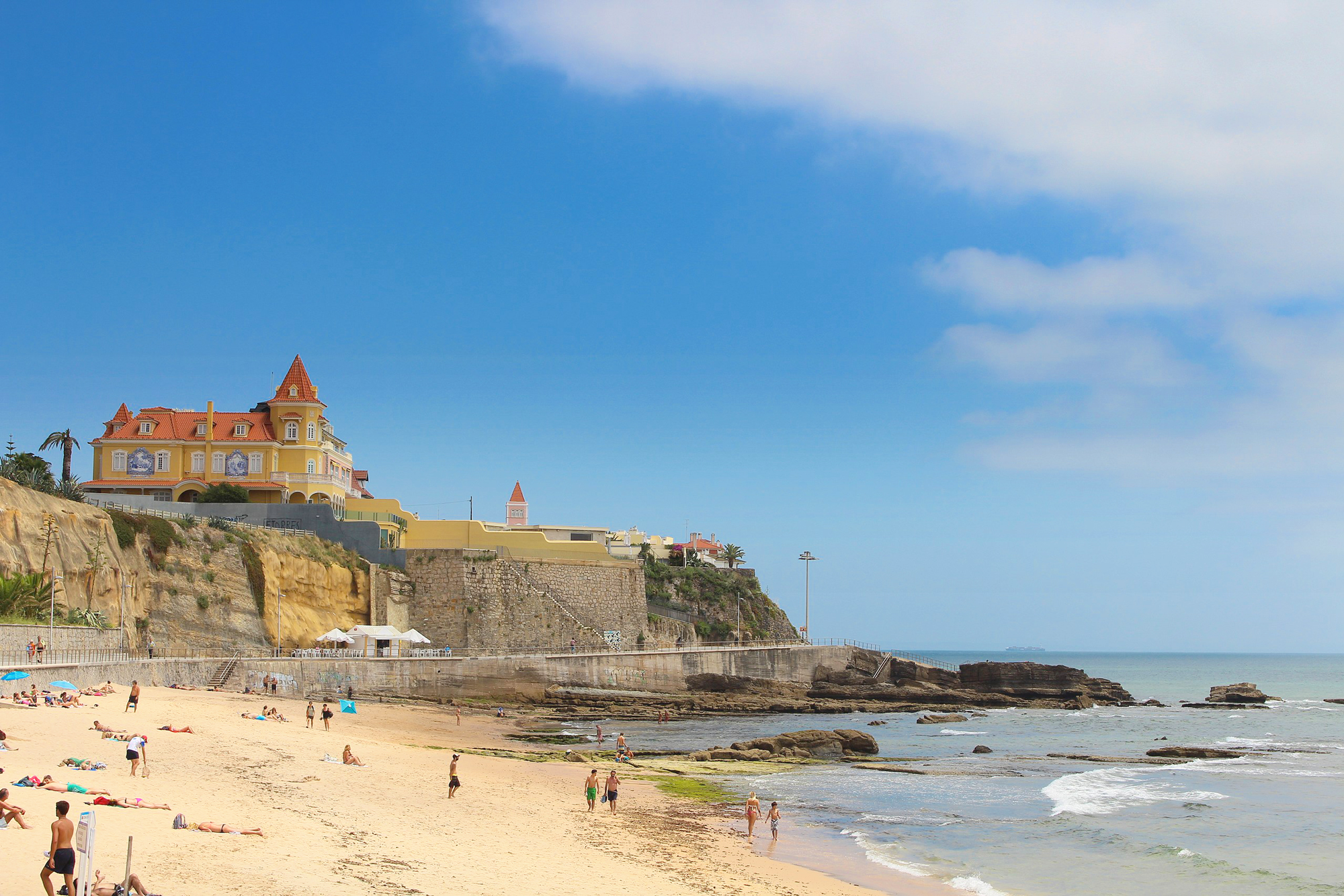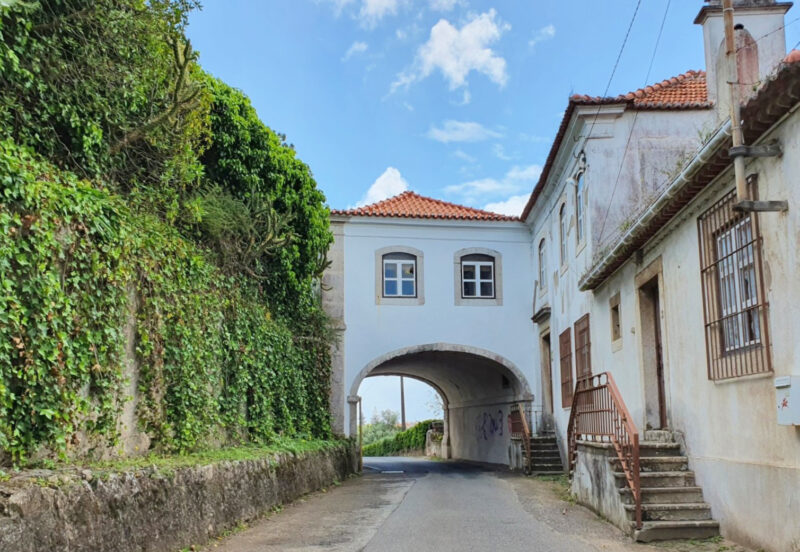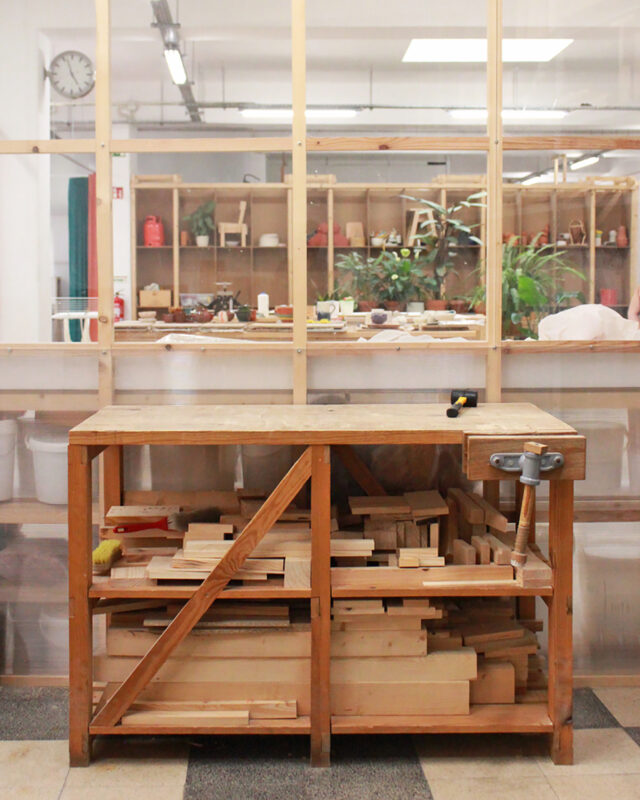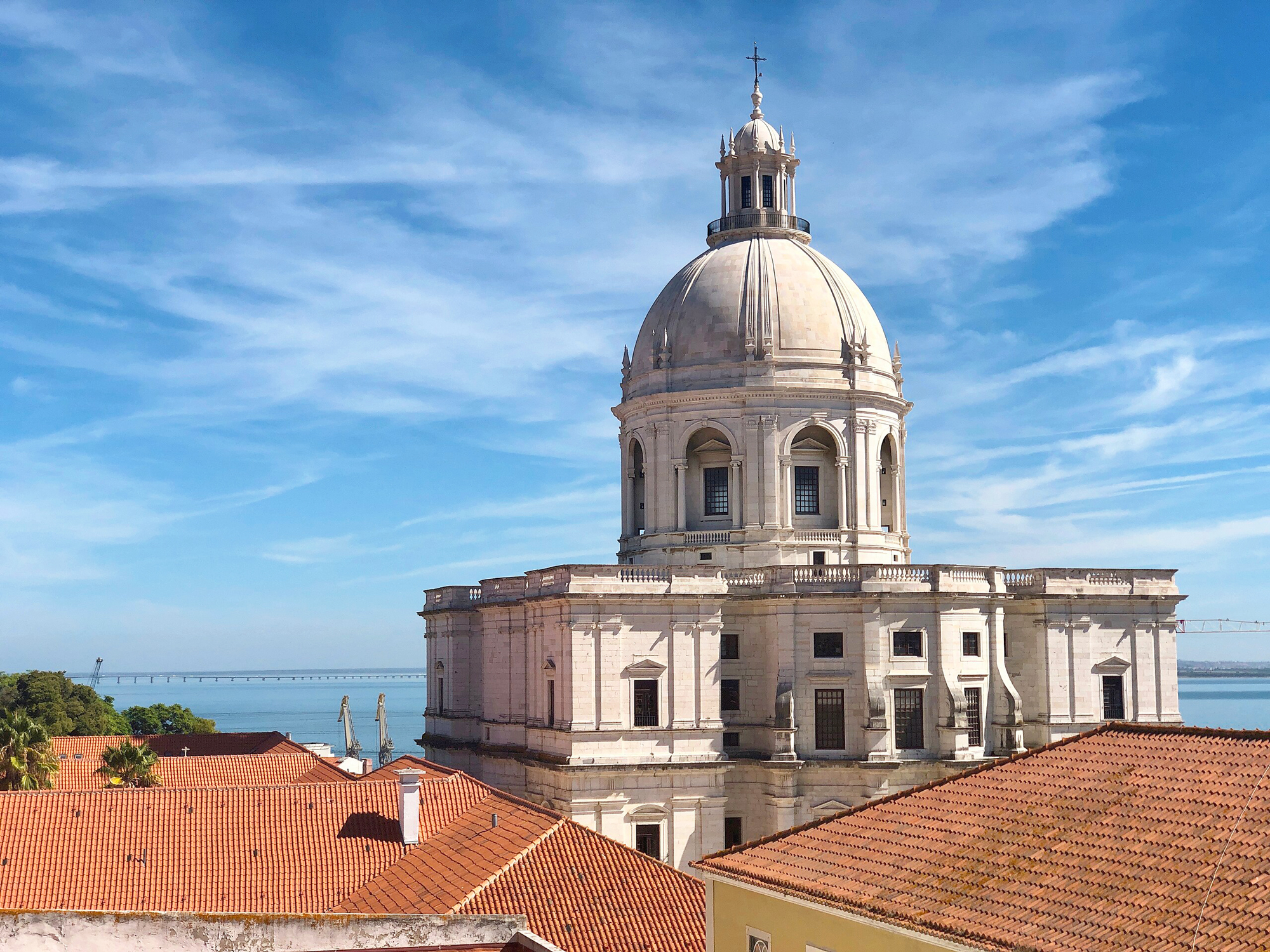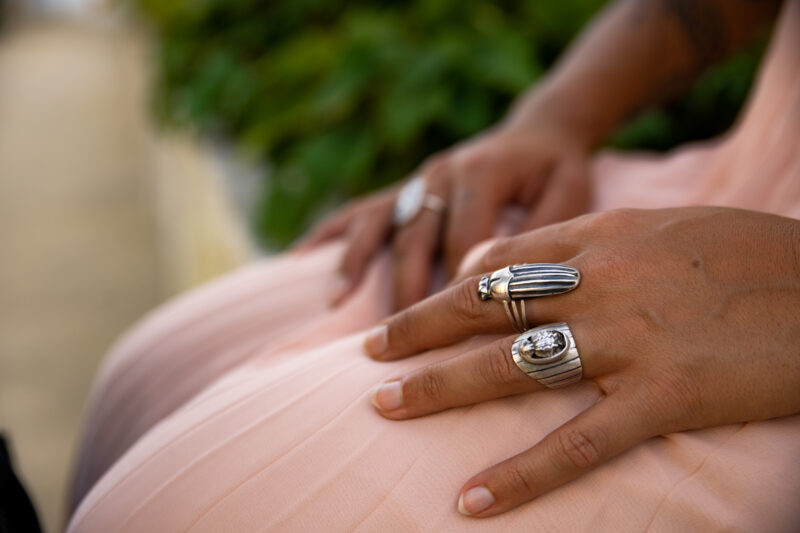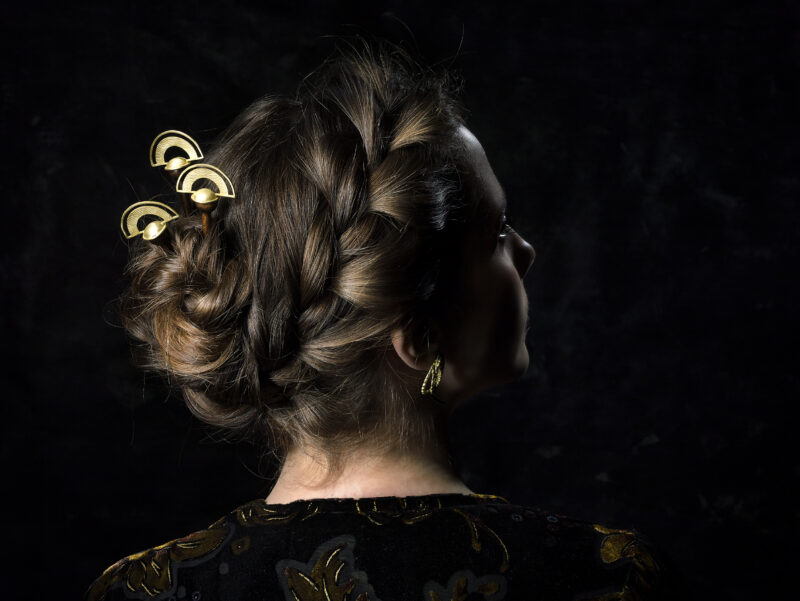Fire, water, air and earth: all elements are represented in Fernandes’ works. With the help of traditional craft techniques, she forges, casts, welds, grinds and polishes to transform her ideas into three-dimensional forms. Ancient civilisations and the natural world around her serve not only as a source of inspiration but also as a pool of materials. Brass, stones, shells, seeds and even fossils find their way into her workshop—and her finished pieces.
©Courtesy of the artist
Which place do you currently call home and where do you work on your projects?
I live in Caxias, in the outskirts of Lisbon, a small, quiet village where the Tagus River meets the Atlantic Sea. It’s a residential area, I built my art studio, a place where I can think and create, next to the house where I live.
Do you have a favourite place in your area where you like to relax and linger?
When I feel like going for a walk, I stroll along the seaside from Caxias to Oeiras, next to the beaches on the Cascais line, all the locals love to relax, sunbathe, see the sea and do a little exercise there. A little further away I love walking my dog on the Sintra mountains. For drinks I love going to SMUP, a local association with years of history. It was founded 1899 in the town of Parede where more alternative emerging artistic projects are developed and presented, mainly in the area of music.
©Singa Hitam, Beach near Lisbon (19898433014), adjusted colours CC BY 2.0
Are there any urgent political issues or problems in your region?
At the moment the most emerging issues are the problems of housing and immigration. In the greater Lisbon area where I live, the price of houses has skyrocketed astronomically, whether you want to buy or rent. It is increasingly difficult for locals to buy a house or rent it at affordable prices, compared to the average salary of a Portuguese person. The growing wave of immigration of foreigners attracted by a peaceful country with an affordable economy for their purchasing power has led to huge price inflation, with locals having to move to increasingly distant areas.
In your opinion, what has developed well in the last 5 years—and what has not?
In the last five years, I believe that cultural exchanges and events have improved is a positive aspect of immigration. The supply of education and services has also increased. But in the case of public education, there is a lot of investment and remodeling to be done. The teaching career has been greatly disrespected…
Unfortunately, housing conditions for the Portuguese also worsened. And many bright young people end up emigrating in search of better salaries.
The purchase of properties by foreign companies has closed many local businesses, stores with a history with Portuguese characteristics, which are placed to more normative and uncharacterized European stores and restaurants.
Do you know a hidden gem when it comes to local manufacturers—whether it’s arts and crafts, sustainable products or food?
I really love the woodwork from rivaldesignermaker.
Is there anything particulary innovative in your region? Also in comparison to other places you have already visited?
In Lisbon I like to eat chestnuts from street vendors (when it’s the right season). In the area where I live, I love watching surfers surf the waves even if it’s winter…
©Vitor Oliveira from Torres Vedras, PORTUGAL, Praia do Norte – Nazaré – Portugal (52024068977), adjusted colours, CC BY-SA 2.0
©GualdimG, Estrada de Laveiras Caxias 03, adjusted colours, CC BY-SA 4.0
Do you have a secret restaurant tip that you would like to share with us?
A great restaurant is in Paço de Arcos, Quitanda, in the nautical center, they only sell sea fish that you choose personally before putting it on the grill.
Is there a local shop whose products are only available in your region?
Stores that bring together interesting Portuguese artists are the Icon shop in Lisbon, in the Chiado neighborhood, and the Depósito store. At FICA, a creative workshop in Alcântara, and at LX factory, you can try out various artistic techniques in workshops. In central Lisbon there are numerous artist ateliers that you can visit by appointment, they are usually very open to visits and you can always buy some interesting items at a lower price than in stores.
©FICA Oficina Criativa, Workshop-woodworking
©FICA Oficina Criativa, Workshop-screenprinting 2
What are your 3 favourite apps that you use every day and couldn’t live without?
Applications I use professionally:
— Instagram (to publicize my work)
And for meeting friends:
— Telegram
Do you have any favourite newspapers or online magazines? And how do you keep up to date with politics or social and cultural issues?
I usually listen to the radio or podcasts and watch articles on topics that interest me like the philosophy magazine revistafenix.pt
© Sonse, Igreja de Santa Engrácia • Church of Santa Engrácia (50662504022), adjusted colours CC BY 2.0
Imagine you could be mayor for a year—what would you change?
I think we’re facing a crisis of moral and values, both in Portugal and in the world, due to weak leaders with poor values. It’ s important to test convictions, create men as free thinkers, capable of thinking for themselves in an inclusive society. Being a leader is not an easy task, in the Classical World before becoming one you had to attend a leadership training school. If I were mayor of my region, Oeiras, I could only trust my conduct, my profile is one of an artist and being political is not in my nature, however, as a human being, I have the ability to observe and understand the human behaviour, reflect and participate. Investing in education would perhaps be my priority, because a country’s greatest demonstration of wealth is investing in the education of children and young people so that they can become more balanced adults. I would also support mothers who want to stay at home longer with their babies. There are countless of areas to improve… but human consciousness will also have to evolve.
One last question: If you could choose another place to live—regardless of financial or time constrains—which one would you choose?
I don’t think I would live in another country—Portugal is, in my opinion, a country that despite everything is still privileged: It has a great climate, it’s peaceful, it has a diverse nature and the fact that it’s not huge means that mobility isn’t that difficult. It’s generally inclusive…
And of course, as it is my homeland, I feel connected to my ancestors and culture. I would just like to move to a house with land in the Alentejo region, where the environment is very relaxed and it’s the ideal place to create and where I can come back from my travels around the world.
©Courtesy of the artist
©Courtesy of the artist


